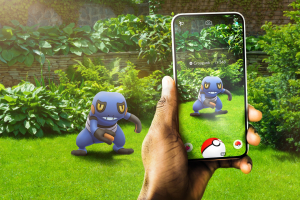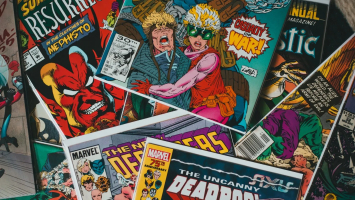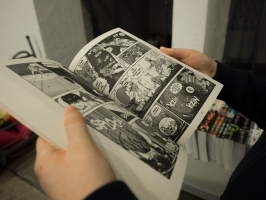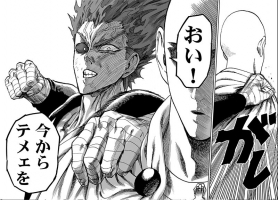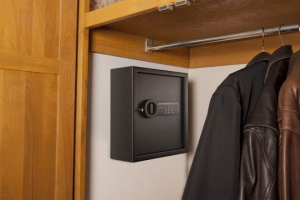Top 10 Silly Lunch Box Jokes for Kids
Laughter is the secret ingredient to turn mundane lunch breaks into delightful moments for your kids. Introducing the Top Silly Lunch Box Jokes for Kids, a ... read more...curated selection of whimsical humor designed to add a sprinkle of joy to their midday meals. These age appropriate jokes are not just funny. They are the perfect companions for turning lunchtime into a daily dose of laughter. Explore them with Toplist right in the article below!
-
Story: Why did the bicycle fall over? It was two-tired
Rationale:
The charm of the joke "Why did the bicycle fall over? It was two-tired" lies in its simplicity and clever wordplay, creating a delightful play on words that invites a light-hearted chuckle. The humor arises from the dual meaning of "two-tired." On the one hand, it refers to the bicycle having two tires, a common feature of bikes. On the other hand, it sounds phonetically similar to "too tired," suggesting the bicycle is experiencing exhaustion, much like a person might. The unexpected twist and connection between the two interpretations add a whimsical touch.
This joke taps into the universal experience of understanding language nuances and appreciating the clever blending of meanings. It's a classic example of how humor can be found in the ordinary and mundane aspects of life, in this case, a bicycle falling over. The simplicity and accessibility of the joke make it suitable for a wide audience, from children to adults. It's the kind of humor that transcends age barriers, bringing smiles through its clever linguistic play and the relatable image of a tired bicycle playfully tipping over. So, the next time someone hears this joke, a grin is likely to spread across their face, appreciating the cleverness behind the two-tired bicycle's predicament.
Photo by Tato Villanova via pexels 
Photo by cottonbro studio via pexels -
Story: What does a cloud wear under his raincoat? Thunderwear
Rationale:
This joke is likely to evoke smiles because it cleverly personifies a cloud, attributing human like qualities to a natural element. The humor centers around the play on words with "Thunderwear". At first glance, it seems like a setup for a typical question about what someone wears underneath their clothing. However, the unexpected twist comes with the word "Thunderwear", which combines the idea of thunder (a sound associated with storms) with the familiar concept of underwear.
The clever wordplay creates a lighthearted and amusing image of a cloud wearing something akin to underwear, and the choice of "Thunderwear" adds an extra layer of whimsy. The unexpected association of weather related terms with clothing is what makes the joke amusing. It is a type of humor that relies on the audience ability to make connections between seemingly unrelated concepts, and the playfulness of the imagery contributes to the overall charm.
This joke is simple yet imaginative, making it suitable for a broad audience, from children who can appreciate the playful nature of the concept to adults who enjoy clever linguistic twists. It is the kind of innocent and witty humor that can bring a smile by turning the mundane into something delightfully imaginative.
Photo by Pixabay via pexels 
Photo by Pixabay via pexels -
Story: Why was the broom late? It over-swept
Rationale:
The humor in the joke "Why was the broom late? It over-swept" stems from a clever play on words and anthropomorphism, attributing human characteristics to an inanimate object. The unexpected twist lies in the interpretation of "over-swept". Typically, being late is associated with oversleeping or taking too much time to get ready. However, in this context, "over-swept" suggests that the broom was so dedicated to its cleaning task that it exceeded the necessary time for sweeping.
The personification of the broom as though it had a responsibility to fulfill, coupled with the play on the word "overswept", creates a whimsical image. It's a subtle and innocent form of humor that transforms a mundane object into a character with quirks, adding a touch of imagination to an everyday scenario. The simplicity of the joke makes it accessible to a wide audience and the relatable concept of running late resonates with people.
Overall, the charm of this joke lies in its ability to make people smile by infusing a mundane object with a humorous personality and attributing a human like reason for its tardiness. It's a light hearted play on everyday situations that invites a moment of amusement.
Photo by cottonbro studio via pexels 
Photo by cottonbro studio via pexels -
Story: Why can’t your hand be 12 inches long? Because then it would be a foot.
Rationale:
This joke induces smiles through a clever play on words and an unexpected twist in the punchline. The humor revolves around the dual meanings of "foot." On one level, it's a unit of measurement, typically 12 inches long. On another level, it refers to the body part at the end of the leg. The question sets up an expectation that the answer will be related to measurement or anatomy, and the punchline delivers the unexpected twist that plays on the double meaning of "foot."
The simplicity and innocence of the joke contribute to its charm. It's a classic example of wordplay that relies on the audience's ability to make connections between different meanings of a common word. The humor is light-hearted and accessible, making it suitable for a wide range of audiences, from children to adults.
Moreover, the joke is relatable because it takes a familiar concept, measuring length and cleverly combines it with a body part, creating an amusing and unexpected association. The playfulness of the language and the surprise in the punchline contribute to the overall enjoyment, prompting a smile from those who appreciate clever linguistic twists.
Photo by ROMAN ODINTSOV via pexels 
Photo by ROMAN ODINTSOV via pexels -
Story: What do you call a fake noodle? An impasta
Rationale:
This joke is likely to induce smiles due to its clever play on words and the unexpected twist in the punchline. The humor hinges on the pun involving "impasta" and "impostor." The joke sets up an expectation of a term related to noodles, but the punchline introduces a clever wordplay that turns the noodle into an "impostor."
The playfulness of the language and the blending of two words with similar sounds create a lighthearted and whimsical effect. The unexpected association of a fake noodle with the concept of being an "impasta" adds an element of surprise, contributing to the overall charm of the joke.
Moreover, the simplicity and innocence of the joke make it accessible to a broad audience, from children who enjoy wordplay to adults who appreciate clever linguistic twists. The relatability of the subject matter, combined with the clever play on words, makes this joke a delightful and light-hearted way to evoke smiles from those who appreciate witty and punny humor.
Photo by Engin Akyurt via pexels 
Photo by Engin Akyurt via pexels -
Story: Why did the kid bring a ladder to school? Because he wanted to go to high school
Rationale:
This joke is likely to elicit smiles due to its playfulness and the clever use of a pun. The humor centers around the double entendre involving the phrase "high school". The initial setup implies a literal interpretation - the kid brings a ladder to school, suggesting a humorous attempt to physically reach a higher level. However, the punchline reveals the wordplay, as "high school" is commonly used to refer to a secondary education institution.
The unexpected twist between the literal and figurative meanings of "high school" adds a layer of cleverness to the joke. It plays with language in a way that is simple yet amusing, appealing to both children and adults. The innocence of the scenario, imagining a child bringing a ladder to school with the earnest intention of going to a higher level of education, contributes to the charm of the joke.
Overall, the humor in this joke arises from the clever blending of literal and figurative language, creating a light hearted and imaginative scenario that invites a moment of amusement.
Photo by Pixabay via pexels 
Photo by Pixabay via pexels -
Story: Why did the tomato turn red? Because it saw the salad dressing.
Rationale:
This joke is likely to bring a smile due to its whimsical and personifying approach to the common phenomenon of a tomato turning red as it ripens. The humor lies in attributing a human like reaction to the tomato, suggesting that it blushed or changed color upon "seeing" the salad dressing. The personification of the tomato adds a playful and imaginative element to the joke.
The unexpected connection between the tomato's change in color and the presence of salad dressing introduces a clever twist, creating a light hearted and relatable scenario. The simplicity of the joke, along with its innocent and playful nature, makes it accessible to a wide range of audiences, including children and adults.
Moreover, the joke taps into the universal experience of understanding the natural process of tomatoes ripening and cleverly overlays it with a humorous narrative, turning a common occurrence into an amusing story. The blend of personification, wordplay, and relatability contributes to the overall charm of the joke, making it a delightful way to evoke smiles.
Photo by Pixabay via pexels 
Photo by Pixabay via pexels -
Story: Why did the cookie go to the doctor? Because it felt crummy.
Rationale:
This joke is likely to bring a smile because it cleverly personifies a cookie and uses a pun to play with the idea of feeling unwell. The humor lies in the wordplay involving "crummy," which is a term often used informally to describe something as being of poor quality or feeling unwell. In this case, the cookie "feels crummy," adding a lighthearted and whimsical touch to the scenario.
The unexpected connection between a cookie going to the doctor and the play on words with "crummy" creates a humorous and imaginative image. The simplicity of the joke, along with the innocence of attributing human-like feelings to a cookie, makes it accessible and enjoyable for a broad audience, including children and adults.
Additionally, the joke taps into the universal experience of associating certain foods with comfort or indulgence, making the idea of a cookie going to the doctor for feeling "crummy" all the more amusing. The blend of personification and wordplay contributes to the overall charm of the joke, making it a delightful way to evoke smiles.
Photo by Lisa Fotios via pexels 
Photo by Lisa Fotios via pexels -
Story: How do we know the ocean is friendly? It waves
Rationale:
This joke is likely to elicit smiles due to its clever play on words and the personification of the ocean. The humor revolves around the double meaning of the word "waves." On one level, it refers to the physical motion of waves in the ocean, a natural phenomenon. On another level, it playfully suggests a friendly gesture, waving as a form of greeting.
The unexpected connection between the ocean's waves and the friendly act of waving adds a lighthearted and whimsical touch to the joke. It turns a natural element into a character with a friendly demeanor, creating an imaginative and playful scenario. The simplicity of the joke makes it accessible and enjoyable for various age groups, including children and adults.
Moreover, the joke plays into the universal experience of perceiving nature in a friendly or benevolent way, and the clever wordplay enhances the overall charm. It's a delightful example of how language can be used to create amusing connections between seemingly unrelated concepts, contributing to the joy and humor of the joke.
Photo by Sebastian Voortman via pexels 
Photo by Sebastian Voortman via pexels -
Story: Why don’t elephants use computers? Because they’re afraid of the mouse
Rationale:
This joke is likely to bring smiles due to its clever use of wordplay and the personification of elephants. The humor arises from the double meaning of the word "mouse." In the context of computers, a mouse is a common input device. However, the joke takes a playful twist by suggesting that elephants are afraid of the small, rodent type mouse.
The unexpected connection between the computer mouse and the literal mouse adds a lighthearted and whimsical element to the scenario. The humor relies on the playful image of elephants being frightened by something small and seemingly inconsequential. The simplicity and innocence of the joke make it accessible and enjoyable for various age groups.
Additionally, the personification of elephants and attributing human like fears to them contributes to the charm of the joke. It's a light and imaginative way to play with language, creating a humorous image of elephants avoiding computers due to their fear of a tiny creature. Overall, the clever wordplay and playful scenario make this joke a delightful way to evoke smiles.
Photo by Pixabay via pexels 
Photo by Casey Allen via pexels
















